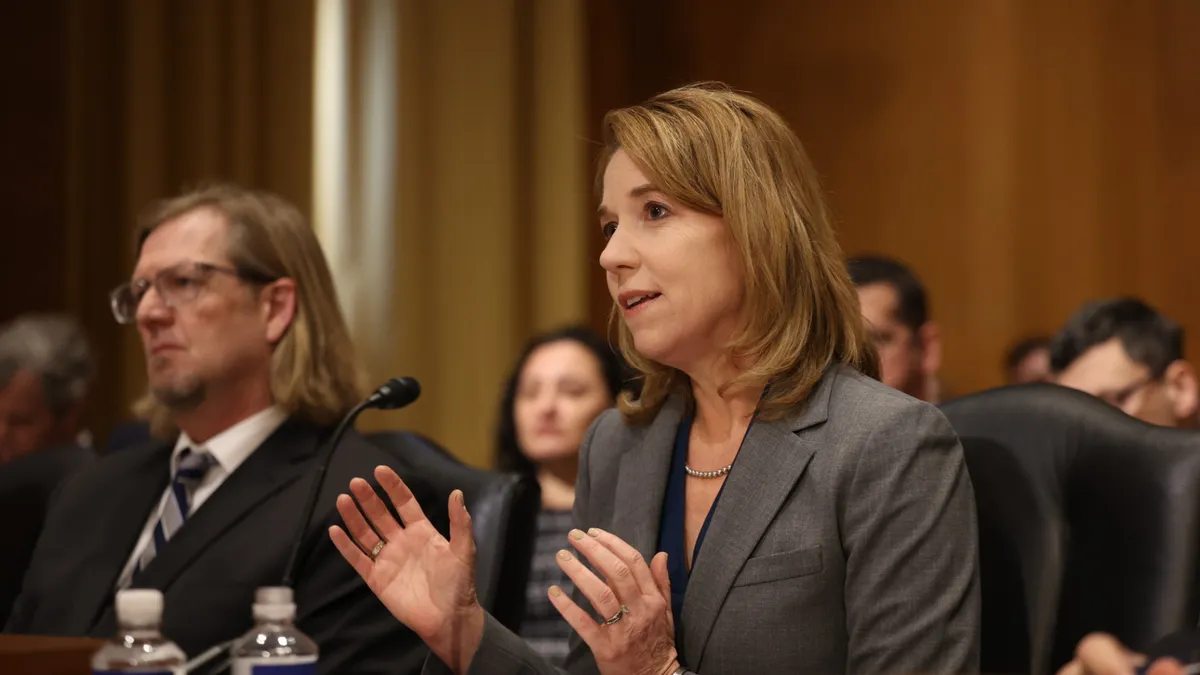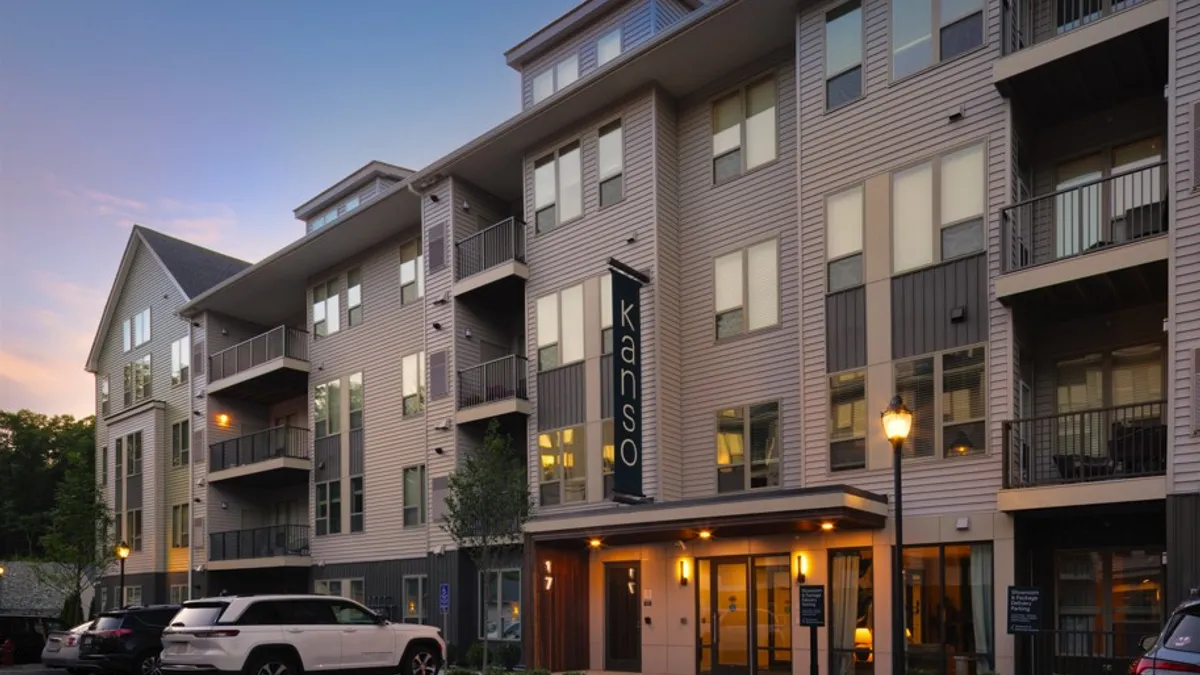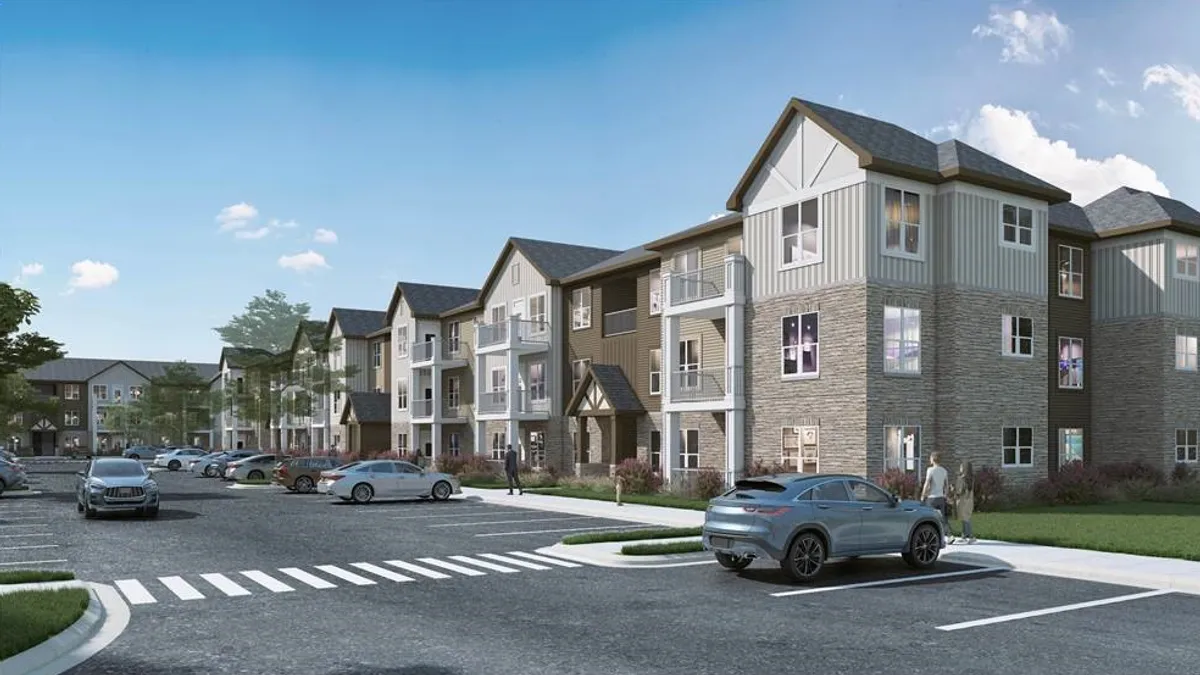Sharon Wilson Géno’s tenure as president of the National Multifamily Housing Council is off to a busy start.
Géno was named president-elect of the NMHC in late 2022, succeeding longtime president Doug Bibby. Shortly before Géno assumed the role of president in February, President Joe Biden unveiled a series of actions aimed at increasing renter protections and improving affordability.
Housing has become a hot legislative topic, and the Biden administration’s action plan has accelerated the conversation. On March 7, Géno testified before the Senate Finance Committee, advocating on behalf of both the NMHC and the National Apartment Association for the expansion and adoption of tax policies that incentivize affordable housing construction — particularly the Affordable Housing Credit Improvement Act, which has been pending before Congress since 2021, according to Géno.
This legislation, if passed, would revise provisions of the Low-Income Housing Tax Credit, raising the per capita amount, extending inflation adjustments and modifying tenant income eligibility requirements, among other changes that expand the credit’s applicability and use.
“We have underbuilt in this country for many, many years,” Géno told Multifamily Dive. “Our population is continuing to grow, [and] we need to find ways to provide those opportunities for shelter.”
Here, Géno speaks with Multifamily Dive about the challenges facing the multifamily sector, including housing supply and rent control, as well as her goals for the organization she now runs.
This interview has been edited for brevity and clarity.
MULTIFAMILY DIVE: What are your goals for your presidency in the short and long term?
SHARON WILSON GÉNO: The goals of the membership are first and foremost the reason why we exist. And the direction so far is — we really need housing supply. Advocating first for housing initiatives is obviously mission critical.

The other issue that has come up over time is rent control. The NMHC has been monitoring and collecting research on rent control initiatives for a very long time. While it seems appropriate in some communities, it really is a failed policy and it undermines the very thing we need, which is more supply. And how do you get more supply? More investment from the capital markets community and the multifamily sector.
Our government does not provide anywhere near the resources that will be necessary to help our nation [build housing]. We've invested well in defense, we've invested well in transportation, we have not invested well in housing.
As a result we need private capital to come in and fuel this building that's necessary to help our people. I see that as a very important challenge, that policies like rent control and additional regulatory policies that are unnecessary for the health and safety of people do not continue to grow.
What are the three biggest challenges for your members right now?
One is the specter of rent control. I'm hearing from some members in certain locations that [rent control] is spooking potential investors. And keep in mind that multifamily is not just funded by American investors — it’s funded in part by foreign investors as well. So they're looking at what's going on here and thinking, if I'm buying multifamily, I want to put money in something that has a lower risk and higher yield.
Two, and this affects everything, is the interest rate environment. It's not something that we necessarily have a whole lot of control over. But it certainly has turned deals that were in the pipeline upside down.
Three, and this one is probably the most troubling to me, it dovetails into the rent control discussion and some of the tenants rights discussion — the growing sentiment that somehow housing providers are the problem and that there is a pervasive rift between housing providers and the customers that they serve. And again, having worked in that area for a very long time, that is not my perception at all.
Certainly, there are bad actors in both cases. But this idea that there's a pervasive eviction problem with landlords acting inappropriately, I just don't think it's true. And we have a lot of work to do, I think, in getting back to a place where people understand what is a complicated industry, and understand that housing providers exist to serve their customers.
Can you elaborate on your involvement in discussions with the White House on housing policy?
Some of this was already starting to take place as I came over [as president-elect] back in October. I attended several meetings in person as well as had a number of phone calls with White House representatives. They have a really terrific housing team there and because housing is now a political issue, right at the federal level, they're very engaged on trying to find solutions.
The other component of that has been the discussion we've been having about the relationship between housing providers and landlords. They have been getting pushed very hard by certain constituencies to try to make changes at the federal level around landlord relationships, which are all areas that are governed very rigidly at the state and local level.
The Constitution of the United States really anticipates that state and local laws will govern those areas. They have been very thoughtful in working with us on where would it be appropriate for the federal government to step in.
What are some of your goals related to housing access and the role the NMHC can play in making it possible?
Much of my testimony [before Congress] was about advocating for housing expansion and increasing the Low Income Housing Tax Credit, which is an important tool for expanding that resource.
Also, we're working very closely with Senator Ron Wyden of Oregon's staff on a middle-income housing tax credit. We're starting to see more stress in that segment of the market, and supply starting to dwindle. More and more middle-income families are becoming cost-burdened not only because of a lack of supply, but also just because wages have not kept up with the costs of operating and maintaining housing.
Are there any quick fixes for the supply issue?
There are no quick fixes. I actually was asked this question at the Senate hearing by Senator Tom Carper of Delaware, and I said, “Look, I've been doing this for 30 years. If I had the magic wand, I would be using it right now.”
What have you learned since becoming president-elect and now president of the NMHC?
The diversity of the membership and the high level of engagement here has been not so much a surprise but certainly a real plus. It's been great to see all different parts of the multifamily industry come together under this roof, how the members are engaging with each other and their interest in getting more information and more opportunity to influence policy.
When I started doing work in the housing world 30 years ago, you would knock on lawmakers’ doors and say “I want to talk about housing” and they were not so interested. Now our issue has been elevated to an incredible level, which is exciting on one hand, but it also means that we have to really think through, “What does this organization do to support multifamily moving forward?



















